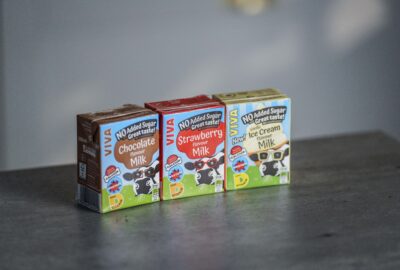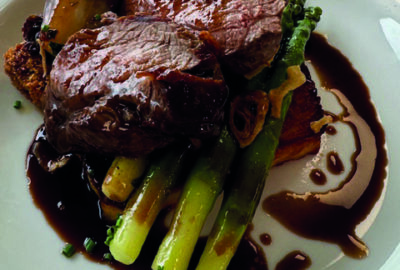In order to succeed, the winning lecturers and students must spend a huge amount of time practising, priming and pushing for perfection throughout the year.
So, for many, the cancellations in 2021 took away an incredibly rewarding and important part of their college life. This is the reason why there has been much rejoicing as competitions such as the Country Range Student Chef Challenge returned this year.
Michael Evans, Culinary Lecturer and Welsh National Junior Culinary Team Manager, comments:
“It was great being back in the Country Range Student Chef Challenge after the disruptions and pain of the last two years. Competitions have always been at the forefront of our teaching philosophy and we invest a lot of our own time to ensure our students have the best chance of taking everything they can from the experiences. With competitions, life for our students and our team is a lot more colourful and rewarding.”
The prestigious Country Range Student Chef Challenge launches every September as the new term kicks off and is open to colleges with hospitality and catering courses from across England, Scotland, Wales and Northern Ireland.
There is no reason why colleges can’t ascertain interest, promote the Challenge to second year students and select teams before the brief has been published as getting off to a quick start is vital.
The team are going to be spending a lot of time together as well so it’s important they bond and have a good blend of skills.
The colleges who regularly make the finals clearly understand that success is as much about the preparation and the planning than it is about the actual cooking itself.
With applications needing to be submitted by the end of November, it means the teams of three students have just three months to create their menus from scratch.
The Challenge’s brief, theme and criteria is created each year by The Craft Guild of Chefs in line with the latest VRQ syllabus in professional cookery. This means some lecturers incorporate parts of the theme into upcoming lessons and classes. Others will simply start running team sessions where the brief can be discussed and dish ideas can be trialled and tweaked.
Culinary Lecturer at City of Glasgow College, Hayley McCook, who actually competed in the Student Chef Challenge in 2017, said:
“We order in a lot of different ingredients linked to the Challenge theme and then we spend time together in the kitchen experimenting and researching. We discuss everything in detail – how we can make the menu sustainable, how we can utilise local ingredients, how we can maximise flavours and textures. The team will spend plenty of time practising the menu so it’s vital they own it and are passionate about it.”
Ahead of the finals, lecturers will be a little more creative and focus on taking students out of their comfort zones to ensure they can deal with the intense pressures that come with practical competition cooking.
Hayley McCook continued:
“When practising ahead of the final, we would switch up the environment each week by using a different kitchen and strange equipment to make the students feel uncomfortable. Things will always go wrong so it’s vital your team can dust themselves down when problems arise, react and keep cooking.”
Michael Evans, Chef Lecturer at Coleg Llandrillo, added:
“In the lead up to the grand final, our team’s dishes were featured on the menu at our student-run restaurant on campus. There is no better way to iron out mistakes and perfect a dish than to make it for paying customers, every day for four weeks under intense conditions.”


